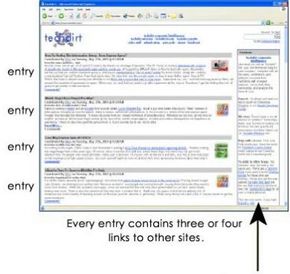Blogs appear on the news pretty often these days. For example, a reporter is tipped to a story by a blog, or a blog reports another angle on a story. Blogs show up in magazines a lot, too.
But there is a good chance you have never seen a blog (also known as a weblog) or experienced the blogosphere. What are blogs? There are now millions of them -- where did they all come from?
Advertisement
One of the things that is so amazing about blogs is their simplicity.
Think about a "normal Web site." It usually has a home page, with links to lots of sub-pages that have more detail. HowStuffWorks is like this, with thousands of information pages all organized under a home page. A small business site follows the same format -- it might have a home page and five or 10 sub-pages. Most traditional Web sites follow this format. If the site is small, it is sort of like an online brochure. If it is large, it is like an electronic encyclopedia.
A typical Web site has a home page that links to sub-pages within the site. CNN.com is typical of this genre. The CNN site contains thousands of articles all organized into big categories. The categories and all the latest stories are accessed from the home page.
A blog is much simpler:
- A blog is normally a single page of entries. There may be archives of older entries, but the "main page" of a blog is all anyone really cares about.
- A blog is organized in reverse-chronological order, from most recent entry to least recent.
- A blog is normally public -- the whole world can see it.
- The entries in a blog usually come from a single author.
- The entries in a blog are usually stream-of-consciousness. There is no particular order to them. For example, if I see a good link, I can throw it in my blog. The tools that most bloggers use make it incredibly easy to add entries to a blog any time they feel like it.
In this article, you will have a chance to enter the world of blogging. You will even learn how to create your own blog and publish it to the world.
Advertisement


